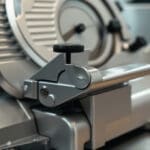Revolutionizing Cuisine: The Role of Food Machines from Farm to Table
Modern cuisine has significantly evolved with the advent of food machines. These innovations enable us to produce, process, and package food more efficiently and conveniently than ever before. For those curious about the impact of food machines on our daily meals, here’s a quick rundown:
- Increased Efficiency: Food machines streamline production processes, reducing the time and labor required to prepare meals.
- Improved Food Safety: Machines ensure high hygienic standards, leading to safer food products.
- Customization and Variety: From vending machines offering fresh salads to precise food processing equipment, food machines provide diverse and customizable options.
- Sustainability: By reducing waste and enabling eco-friendly practices, food machines support sustainable food systems.
Food machines bridge the gap between farm and table, ensuring that what we eat is not only delicious but also handled with care from start to finish.
As someone passionate about this field, I’m Todd Cleppe, Executive Engineer at C-FAB LLC. With over 25 years of expertise in food packaging and processing equipment, I’ve seen how innovations in food machines can revolutionize the industry, from increasing productivity to boosting sustainability. Join me, as we explore the intricate workings and benefits of these fascinating machines in modern cuisine.

The Evolution of Food Machines
Food machines have come a long way from their humble beginnings. Let’s take a journey through their history, technological advancements, and the rise of automation.
A Brief History
Food machines have been around since the early 20th century. Initially, they were simple devices like hand-cranked meat grinders and basic bread slicers. These early machines made food preparation easier but required significant manual effort.
The real change began in the 1960s and 70s with the advent of electric food processors and mixers. These machines started to take over tedious kitchen tasks, saving time and effort.
Technological Advancements
Fast forward to today, and food machines are packed with cutting-edge technology. Modern food machines are not just about chopping or mixing; they are sophisticated devices that can cook, package, and even 3D print food.
For example, bread machines now come with multiple settings for different types of bread, from whole grain to gluten-free. They can knead, rise, and bake bread with minimal human intervention.
The Rise of Automation
Automation is the game-changer in the food industry. Automated production lines can produce large quantities of food with consistent quality. Automation isn’t just about mass production; it’s also about precision. Advanced vending machines use automation to provide fresh, healthy meals in airports and offices. These machines can track customer behavior, manage inventory, and even offer personalized content.
Moreover, 3D food printers are pushing the boundaries of what’s possible. These printers can create intricate designs and textures, making them popular in high-end restaurants and culinary schools.
In summary, the evolution of food machines has been marked by significant technological advancements and the rise of automation. These innovations have made food preparation, processing, and packaging more efficient and reliable.
Types of Food Machines in Modern Cuisine
Bread Machines
Bread machines have revolutionized the way we bake at home. These devices allow anyone to enjoy fresh, homemade bread with minimal effort. Vertical bread machines are still popular for their smaller footprint and affordability. However, horizontal bread machines are gaining traction for their ability to produce larger, more traditionally shaped loaves.
The best bread makers come with features like delayed start, crust color options, and even gluten-free settings. These machines can knead, rise, and bake bread automatically, making them incredibly efficient and user-friendly.
Baby Food Makers
For busy parents, baby food makers are a game-changer. These devices simplify the process of making nutritious baby food at home. They often come with multiple functions like blending, steaming, and even sterilizing.
Vending Machines
Modern vending machines have come a long way from just dispensing snacks and drinks. Today’s advanced vending machines can offer fresh food options and even robotic vending services. These machines are ideal for busy locations like office buildings, hospitals, and college campuses.
3D Food Printers
3D food printers are at the cutting edge of culinary technology. These printers can create intricate designs and textures, making them popular in high-end restaurants and culinary schools.
Concession Machines
Concession machines are perfect for adding a fun twist to any event. Whether it’s a birthday party, wedding, or corporate event, these machines can provide a variety of treats. Popular options include chocolate fountains, cotton candy machines, hot dog steamers, nacho warmers, popcorn machines, sno-cone machines, slushie machines, and soft serve ice cream machines.
These machines are easy to use and can be rented for short-term events. They offer a nostalgic and enjoyable experience for guests of all ages.
Food Processing and Packaging Solutions
Food Processing Equipment
In modern cuisine, food processing equipment plays a crucial role in ensuring efficiency and quality.
Food Packaging Solutions
Food packaging solutions are just as important as processing equipment.
Eco-friendly packaging is becoming increasingly important as consumers become more environmentally conscious.
The rise of flexitarian meals—diets that are primarily vegetarian but occasionally include meat or fish—has also influenced packaging trends. Flexible packaging solutions that cater to these diverse dietary needs are essential.
The Impact of Food Machines on Sustainability
Food machines play a crucial role in making our food systems more sustainable. Here’s how:
Waste Reduction
One of the biggest advantages of food machines is their ability to reduce waste. Automated systems ensure precise measurements and consistent quality, which minimizes food waste.
Eco-Friendly Practices
Food machines also promote eco-friendly practices. Many modern machines are designed to be energy-efficient and use less water. For instance, ozone technology is used in food processing to sanitize surfaces and decontaminate water without leaving toxic residues. Ozone is a powerful disinfectant that naturally decomposes back into oxygen, making it safe for the environment.
Flexitarian Diet
The rise of the flexitarian diet—a mostly vegetarian diet that occasionally includes meat or fish—has also influenced the design of food machines. Machines that can handle a variety of food products are essential for catering to this dietary trend.
In summary, food machines are not just about convenience; they are vital for promoting sustainability in modern cuisine. By reducing waste, encouraging eco-friendly practices, and supporting diverse diets, these machines help create a more sustainable food system.
Next, we’ll explore the frequently asked questions about food machines and their benefits.
Frequently Asked Questions about Food Machines
What are the benefits of using food machines?
Food machines offer numerous advantages:
-
Efficiency: They streamline food preparation, saving time and effort. For instance, bread machines can knead, rise, and bake dough without manual intervention.
-
Consistency: Whether making dumplings or packaging snacks, machines ensure uniform quality and appearance every time.
-
Scalability: From small street stands to large food plants, machines can scale production to meet demand.
-
Innovation: Advanced technologies like 3D food printers create new culinary possibilities, such as bio-printed cultivated fish.
How do food machines contribute to sustainability?
Food machines play a significant role in promoting sustainability:
-
Waste Reduction: Automated systems minimize food waste by precisely measuring and packaging products.
-
Eco-Friendly Packaging: Machines can use environmentally friendly materials, reducing plastic waste and supporting recycling efforts.
-
Energy Efficiency: Modern food machines are designed to be energy-efficient, lowering the carbon footprint of food production and packaging processes.
What types of food machines are best for home use?
Several food machines are ideal for home use:
-
Bread Machines: These are perfect for making fresh, homemade bread with minimal effort. They come in both vertical and horizontal models to suit different kitchen spaces.
-
Baby Food Makers: These machines blend and steam ingredients, making it easy for parents to prepare healthy meals for their babies.
-
Vending Machines: Advanced vending machines provide fresh, healthy options conveniently. They are great for home offices or small businesses.
-
Concession Machines: Fun machines like popcorn makers, cotton candy machines, and slushie machines are perfect for parties and family gatherings.
Food machines not only improve convenience but also support sustainable and healthy eating habits. Next, we’ll dig into the benefits of using food machines and how they contribute to a more sustainable food system.
Conclusion
At CFAB Global, we understand the significant role food machines play in modern cuisine. From enhancing convenience to promoting sustainability, these machines are changing the way we prepare, package, and consume food.
Our Commitment to Machine Reliability
We offer a comprehensive machine reliability program that ensures your food machines operate at peak performance. This program is designed to:
- Increase productivity: By minimizing machine downtime, you can maintain a consistent production flow.
- Reduce downtime: Our proactive maintenance strategies help prevent unexpected breakdowns.
- Extend lifespan of machinery components: Regular maintenance and timely upgrades extend the life of your equipment, providing a better return on investment.
Why Choose CFAB Global?
Our approach is rooted in understanding your unique business challenges. We provide custom solutions that not only meet but exceed your expectations. Whether you need food processing equipment from Beth-El Machinery Ltd. or advanced vending machines, we have the expertise to guide you.
By choosing CFAB Global, you invest in quality, efficiency, and sustainability. Let us help you steer the future of food technology with confidence.
For more information on our services, visit our equipment installation page.
Thank you for joining us on this journey through food machines. We look forward to helping you achieve your culinary goals with innovative and reliable solutions.






